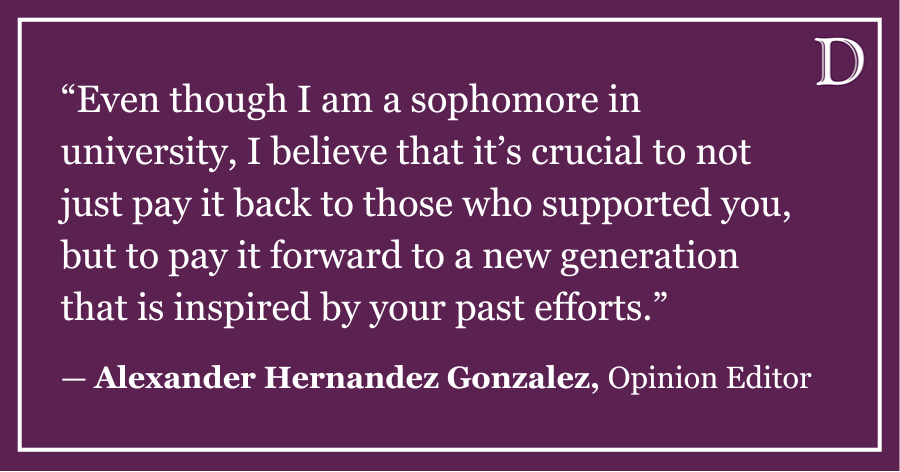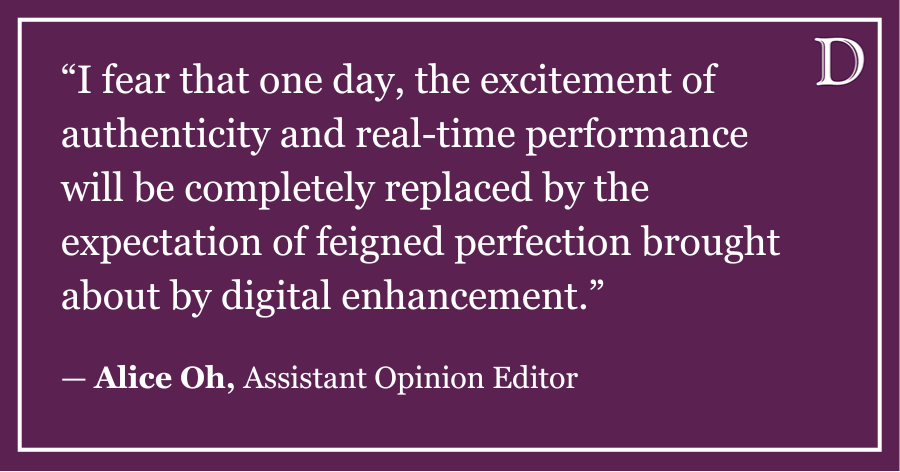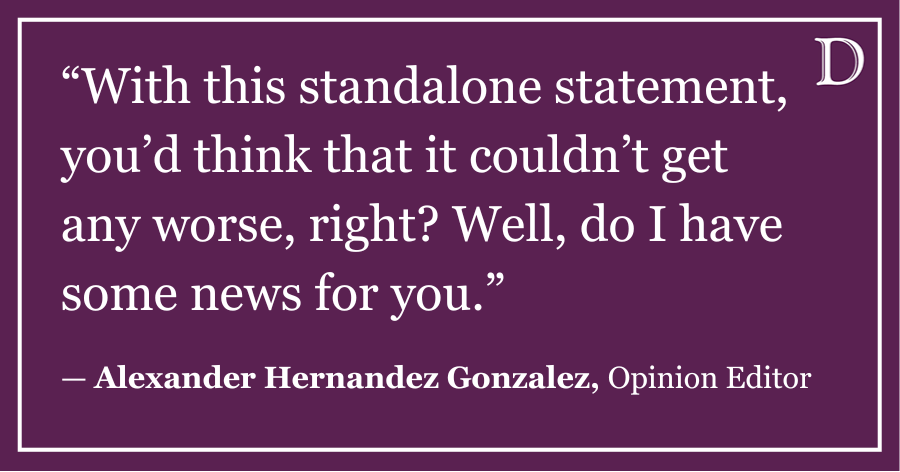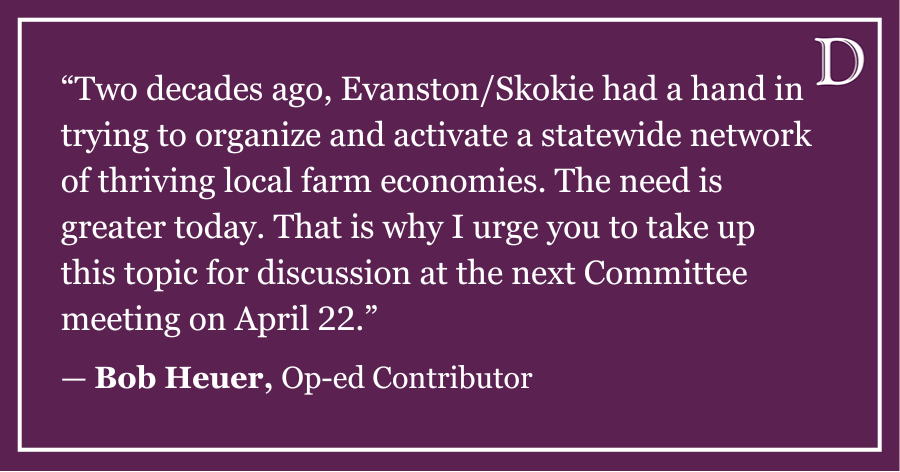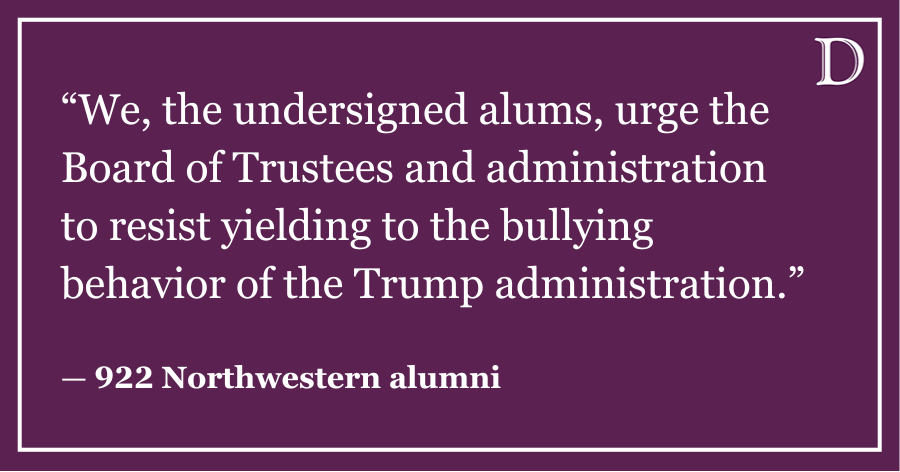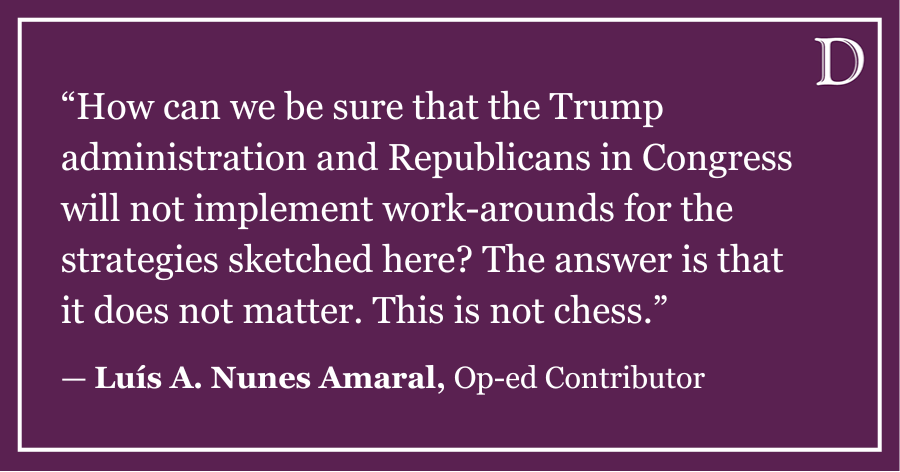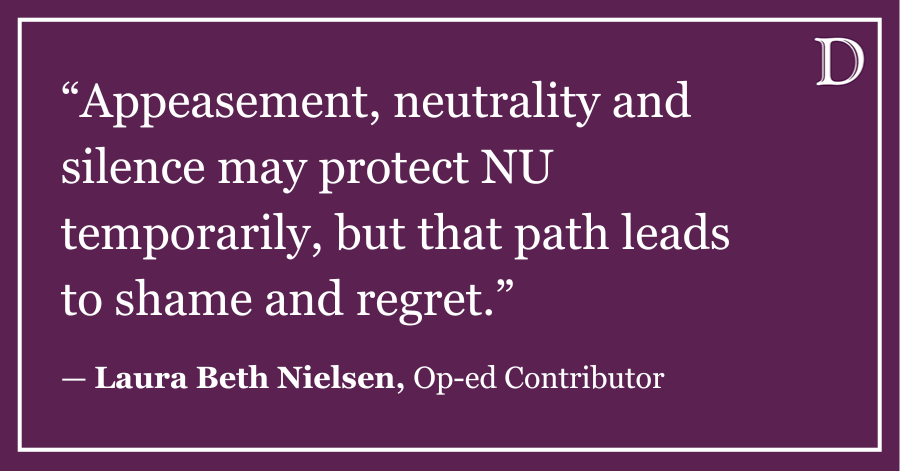We’re all trying to figure out what we want to do with our lives. Especially if you’re an upperclassman, Fall Quarter is usually when the pressure peaks. Everyone’s competing for summer internships, there are career fairs happening left and right, and you get about 12 email blasts a week about job opportunities. It’s enough to make anyone feel overwhelmed.
It’s easy to get caught up in the Northwestern attitude of “I need to have as many interviews as possible with as many Fortune 500 companies in the next quarter so that I have different options and can be successful and not end up on the streets begging for food.”
Once you start thinking like that, it’s easy to spiral into fretting about how much money you’ll make, how long you’ll be in school and where you want to end up – and end up planning out your entire life.
I would argue that’s the easy way out.
How, you ask? You’re working your butt off trying to beat everyone to get specific interviews to go into a field you know you should want to go into, one that your classes prepare you for and the one that your classmates always discuss.
But that’s following a formula. Someone else wrote that plan, and you’re just following their pre-made checklist of what will make you successful. It’s an easy way out of actually figuring out the best way you can be truly happy at your job.
It’s harder to figure out what you actually are passionate about. Life isn’t ultimately about how much money you make. Sure, it’s important to make enough money that you can live comfortably and won’t end up on the streets. But when you’re on your deathbed, if you picked a job that you didn’t particularly enjoy just so that you could make a ton of money and spend it all, you’re not necessarily going to be proud of what you did at that job. You’re going to be proud of what you did with the money you made, whether you spent it all on your family, on your friends, on charity or on yourself.
The true reason for getting a job shouldn’t just be to earn money. People should find a job so that they can benefit society in whichever way they can, doing what they most enjoy or what they are best at doing.
There is no reason you can’t have money and be happy in your profession. If you pick a profession that you are truly passionate about, money will follow in your wake one way or another. If you’re doing something because you really believe in it, you’re going to dedicate yourself to it, and you’ll inevitably succeed one way or another.
It may seem like we have all the time in the world, but starting sooner than later will make a world of a difference in the end.
How do you decide if something is a worthwhile career path?
First, research possible careers. Research random ones, ones you think you’d never do, research everything you can to figure out what is out there. Even as you go through the motions for a certain path, if you haven’t struck gold and found your passion yet, you can always keep your eyes open for something else. The learning process is endless.
Next, try to see whether you can get an internship or shadow someone in that field for a while. Don’t try to make it into a competition or try to get into the top firms in that field; first just see what the average person does.
Then think to yourself: Are you satisfied at the end of each work day? Do you have tasks that you need to do the next day that excite you? Do you feel like you are making a difference and accomplishing something? Do you not necessarily smile at work, but feel as if you’re doing something right?
It’s a gut feeling, which makes it one of the hardest to read. Eliminate all the pressures from your parents, your peers and your bosses and think of the big picture. If you feel good at the end of the day, it’s a worthwhile field to consider going into.
What I used to worry about was that I would run out of summers or breaks to look at all the fields that interest me. I worried that my major was specific to a certain profession, one that I’m not sure I would even want to pursue. But in the end, your undergraduate degree won’t make or break your career aspirations. What will carry over from your undergraduate years is what you learned about yourself and your passions.
Meera Patel is a McCormick junior. She can be reached at meera@u.northwestern.edu. If you want to respond publicly to this column, send a Letter to the Editor to opinion@dailynorthwestern.com.


